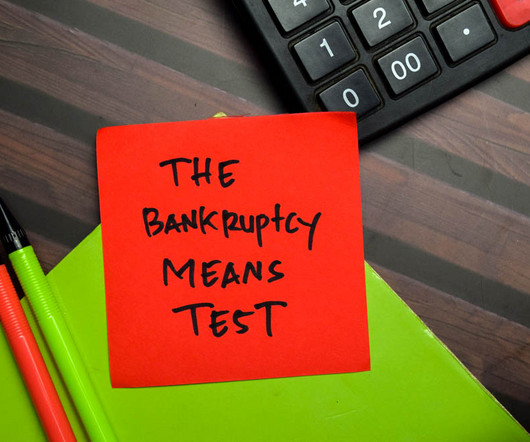How Much Debt is Needed to File for Bankruptcy?
Sawin & Shea
MARCH 9, 2022
When facing bankruptcy, many wonder how much debt is needed to file bankruptcy. There is no minimum amount of debt you need in order to file for bankruptcy, but there are other critical factors you need to take into consideration before filing under Chapter 7 or Chapter 13. Should I File for Bankruptcy?















Let's personalize your content